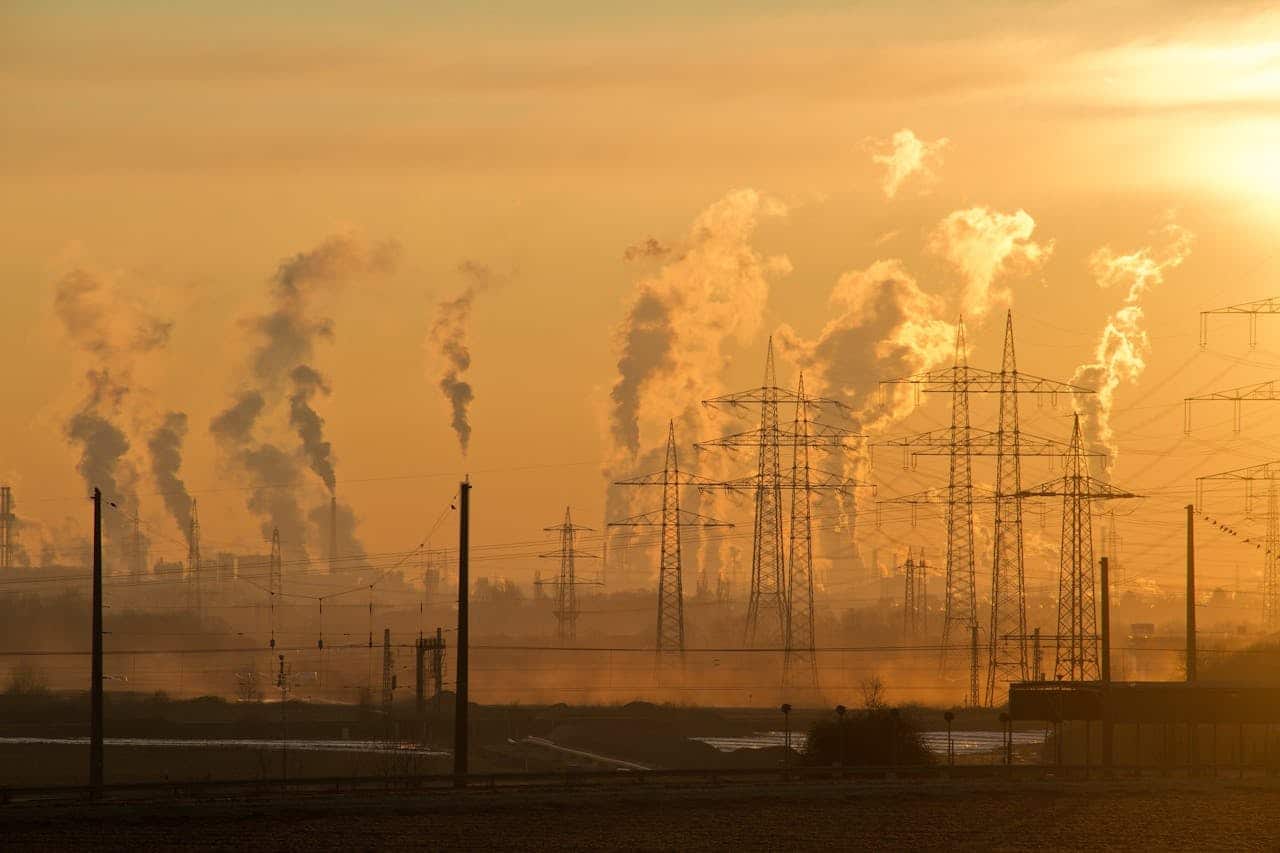When it comes to climate change, the debate is over. A new review of more than 88,000 climate-related studies has confirmed what scientists have been saying for decades: more than 99.9% of peer-reviewed research agrees that climate change is largely caused by human activity. The burning of fossil fuels, deforestation, and industrial emissions are accelerating global warming at an alarming rate.
But here’s the part we don’t always talk about: climate change isn’t just about melting ice caps or rising seas — it’s about your health. From the air you breathe to the food you eat, the health effects are already here and will only intensify unless action is taken.
What the Science Really Says
The latest consensus study examined 88,125 peer reviewed climate papers published from 2012 through November 2020 and asked a focused question: do these papers accept that recent warming is mainly driven by human activities. The authors updated a 1991 to 2012 review that reported a 97 percent agreement and tested whether the level of agreement had shifted as the literature expanded.
The team used a two step approach. First, they drew a random sample of 3,000 papers from the full database and coded each paper for its position on causation based on the title, abstract, and if needed the full text. Only four papers in this random sample were coded as skeptical of human causation. Second, they built a keyword based classifier seeded with terms that frequently appear in dissenting work, such as solar variability, cosmic rays, and natural cycles, and applied it to the entire database to pull potential skeptics to the top of the queue for manual review. Across all 88,125 papers this targeted search returned 28 that were implicitly or explicitly skeptical.
Importantly, the study defined consensus in a way that matches how the field actually writes. Many research articles do not restate causation because it is already established; they focus instead on impacts, methods, or regional trends. In the coding scheme, papers that did not make a clear claim about the cause of warming were treated as neutral rather than as endorsements, which pushes the measured agreement downward rather than upward. Despite that conservative treatment, the estimated agreement exceeds 99.9 percent.
As with any literature survey, there are limits. The database was restricted to English language peer reviewed papers, and the keyword search, while effective at exposing dissent, can miss a small number of papers that use unusual phrasing. The authors mitigated these risks through random sampling and manual verification, which together set tight bounds around the result.
Taken together, the update shows that the more the literature grows, the stronger the agreement becomes that human emissions are the main driver of recent warming. The remaining skeptical papers are exceedingly rare in the peer reviewed record and are clustered in minor journals, which further reduces their influence on the evidence base.

How Climate Change Impacts Your Health
Climate change reaches health in many ways. Rising temperatures worsen air pollution and lengthen pollen seasons, driving more asthma, heart disease, and respiratory illness. Heat waves bring higher rates of heat stroke, kidney injury, and cardiovascular strain, especially in older adults and outdoor workers.
Severe storms and floods cause immediate injury and death and leave behind mold, contaminated water, and power outages that disrupt medical care. Warmer coastal waters foster harmful algal blooms and waterborne pathogens that sicken people through seafood and recreational exposure.
Shifting climate zones expand the reach of mosquitoes and ticks, spreading diseases like dengue, West Nile virus, and Lyme into new areas. Food and water security decline as crops yield less, nutrient quality falls, and fisheries face disruptions, with low income communities hit hardest.
Pregnant women and children are particularly vulnerable. Heat and air pollution raise risks of preterm birth and impaired childhood lung development. Children breathe more air per body weight, increasing their exposure during hot and polluted days.
Mental health also suffers. Disasters trigger anxiety, depression, and post traumatic stress, while repeated events erode community stability and wellbeing. Health systems themselves are strained by surges in admissions and interruptions in essential care when infrastructure fails.
Why Misinformation Persists
Even with scientific agreement above 99 percent, large segments of the public remain unconvinced. The gap is partly explained by political and media environments that amplify uncertainty. As the Pew Research Center observed, only 27 percent of U.S. adults in 2016 believed that “almost all” scientists agree climate change is human-caused. This persistent misperception is not simply a matter of information access. It reflects the way communication is shaped by partisan framing and selective exposure to media that emphasizes doubt.
The structure of climate misinformation often relies on elevating the small number of dissenting studies or opinions as if they were equal to the overwhelming majority. Social media further accelerates this by allowing misleading claims to circulate widely before corrections reach audiences. Repeated exposure to these narratives creates a false impression of ongoing scientific debate even when the literature shows otherwise. Misinformation can also be motivated by economic interests. Industries linked to fossil fuels have historically funded campaigns that question the science, and those narratives continue to influence policy discussions.
Researchers such as Lynas and colleagues stress the need for quantification because it helps cut through selective use of individual papers. As they explain, “to understand where a consensus exists, you have to be able to quantify it.” Clear measurement makes it harder to misrepresent the state of the science. Yet public trust depends not only on the numbers but also on communication strategies that reach people across political and cultural divides.
The persistence of misinformation matters for health because it delays preparation and adaptation. If individuals doubt the reality of climate change, they are less likely to support measures that protect communities from heat, floods, or air pollution. This leaves vulnerable populations at higher risk and slows the policy responses that could reduce harm.
Steps You Can Take for Your Family’s Health
Climate change may feel overwhelming, but practical measures can help safeguard your household while reducing risk. Reliable information is the first tool. Following trusted agencies such as NASA, the CDC, and the WHO ensures you are acting on evidence rather than rumor. Awareness allows you to anticipate heat events, air quality alerts, and severe storms with greater accuracy.
Air quality deserves special attention. Using indoor air purifiers, keeping filters clean, and reducing exposure on poor air quality days protect respiratory health. For those with asthma or cardiovascular disease, having medication and action plans ready is particularly important.
Hydration and cooling strategies reduce harm during extreme heat. Recognizing early warning signs of heat exhaustion, scheduling outdoor activity in cooler parts of the day, and preparing shaded or cooled spaces at home keep vulnerable family members safe.
Food choices and waste reduction contribute to both health and resilience. Eating more plant based meals, supporting local producers, and storing food safely after outages protect nutrition and reduce reliance on disrupted supply chains.
Community action strengthens individual protection. Participating in local preparedness programs, supporting clean energy policies, and volunteering during recovery efforts all help build resilience. These steps connect personal health to broader community wellbeing.

My Personal RX on Staying Healthy in a Changing Climate on Staying Healthy in a Changing Climate
Climate change is real, and its health effects are already here. But there’s good news: you have the power to strengthen your body and mind against these stressors. Here are my prescriptions for staying resilient:
- Support Your Gut-Brain Connection: Stress and anxiety often rise in times of uncertainty. Consider adding MindBiotic, which supports healthy digestion, mood balance, and stress management through a blend of probiotics and adaptogens.
- Build Resilience with Whole Foods: Eating nutrient-dense meals helps protect your immune system and energy levels. Mindful Meals offers simple, delicious recipes designed to keep you nourished even when climate events disrupt normal routines.
- Prepare for Heat Waves: Keep a hydration plan—drink plenty of water, avoid excessive caffeine or alcohol, and keep electrolyte-rich foods handy.
- Improve Indoor Air Quality: Houseplants, air purifiers, and keeping windows closed during poor air quality days can protect your lungs.
- Keep an Emergency Kit: Include medications, clean water, shelf-stable foods, and basic first-aid supplies. Preparedness can reduce stress when extreme weather hits.
- Prioritize Mental Wellness: Practice deep breathing, meditation, or yoga to reduce eco-anxiety. Connecting with community groups can provide support and shared action.
- Stay Physically Active: Movement supports both physical and mental resilience. On high-pollution days, opt for indoor exercise routines.
- Eat Anti-Inflammatory Foods: Focus on berries, leafy greens, fatty fish, and nuts to counteract inflammation linked to pollution exposure.
- Limit Processed Foods: Processed and sugary foods can worsen inflammation and weaken immunity.
- Educate Yourself: Understanding the science helps combat misinformation. Stay curious, and teach your children how small daily choices can support both their health and the planet.
Sources:
Lynas, M., Houlton, B. Z., & Perry, S. (2021). Greater than 99% consensus on human caused climate change in the peer-reviewed scientific literature. Environmental Research Letters, 16(11), 114005. https://doi.org/10.1088/1748-9326/ac2966
Pew Research Center. (2016, October 4). The politics of climate. https://www.pewresearch.org/science/2016/10/04/the-politics-of-climate/Centers for Disease Control and Prevention. (2023, May 4). Effects of climate change on health. Retrieved September 28, 2025, from https://www.cdc.gov/climate-health/php/effects/index.html











 Subscribe to Ask Dr. Nandi YouTube Channel
Subscribe to Ask Dr. Nandi YouTube Channel









